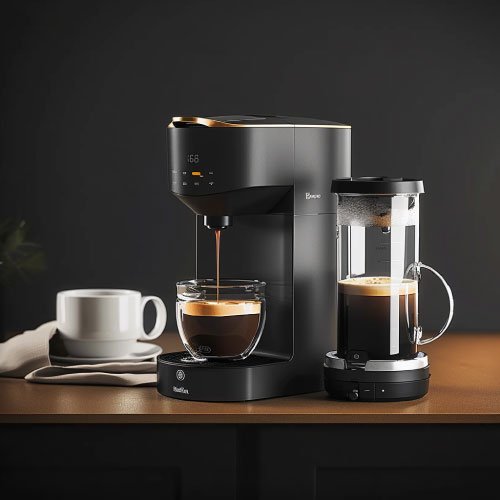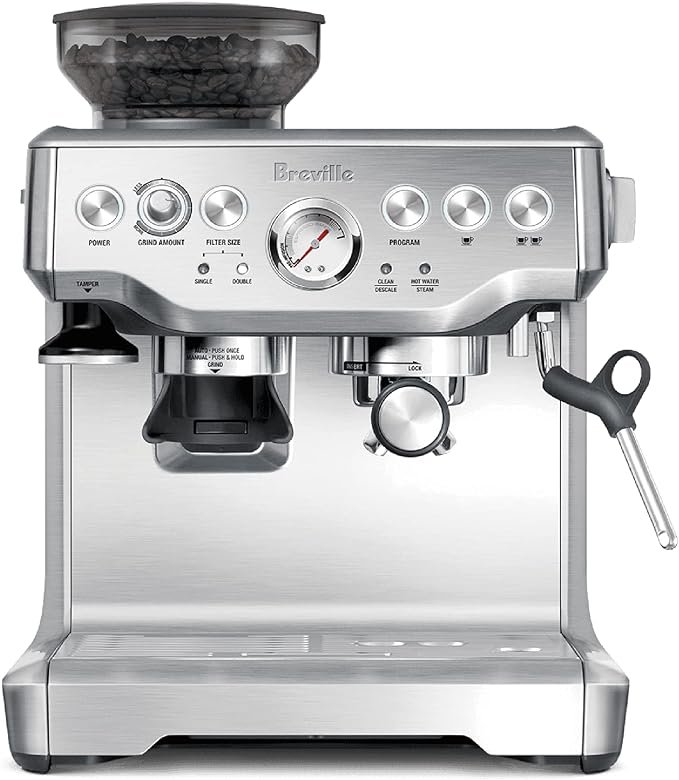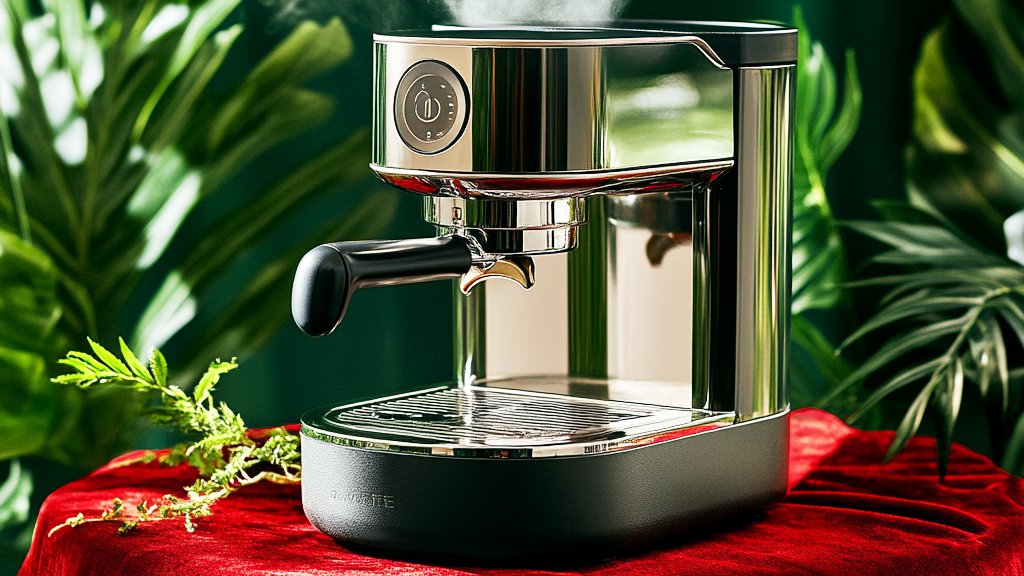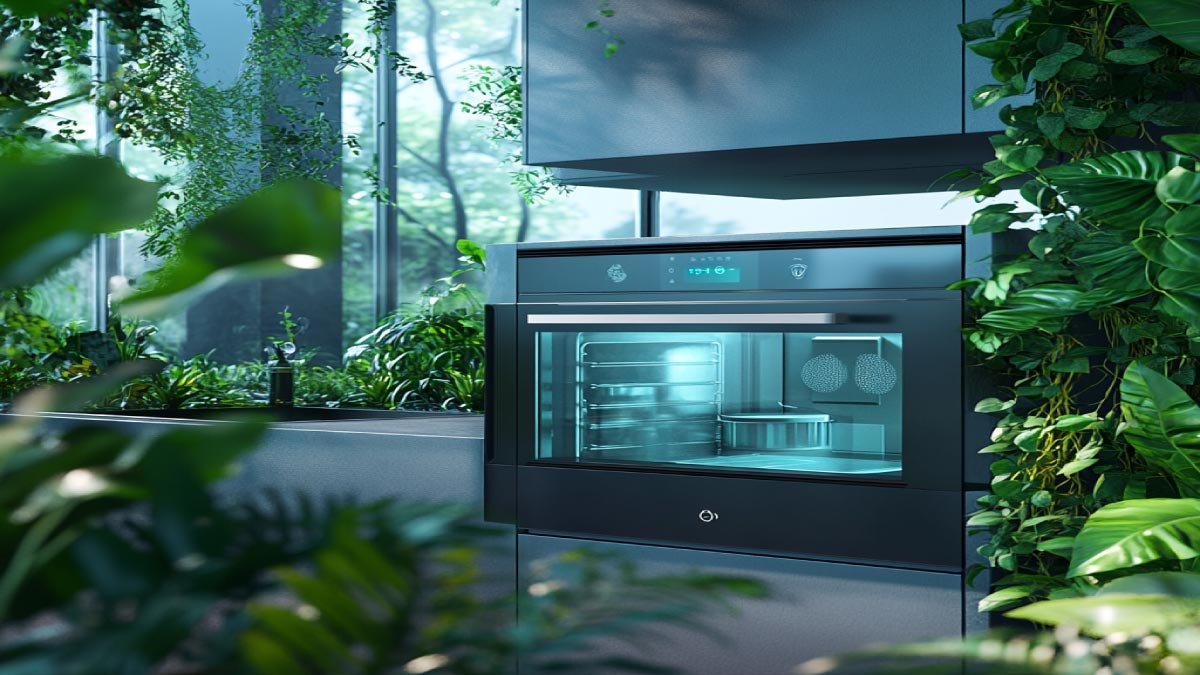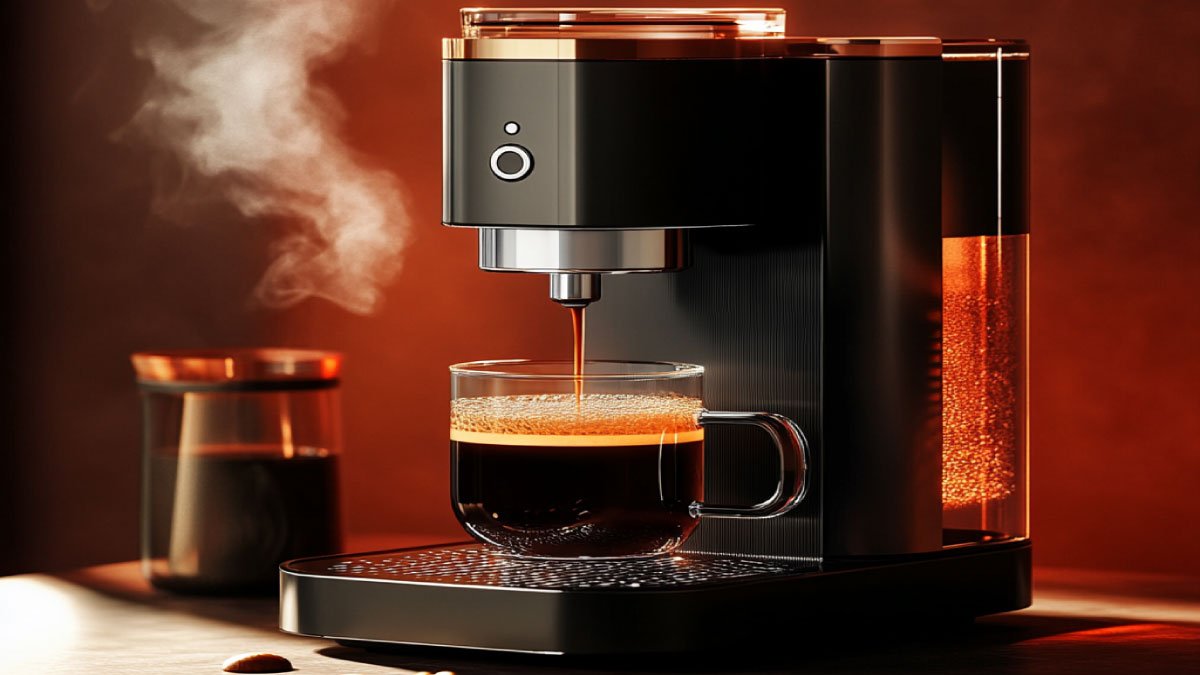If you’ve ever brewed coffee with your Keurig and found coffee grounds in your mug. You might wonder, “Why is there coffee grounds in my Keurig?” Several factors can cause this issue. Understanding these causes and how to fix them will help you enjoy a perfect, grind-free cup every time.
Common Causes of Coffee Grounds in Your Keurig
Clogged Exit Needle in Your Keurig Coffee Maker:
One common reason for finding coffee grounds in your Keurig is a clogged exit needle. The exit needle punctures the bottom of the K-Cup pod and allows the coffee to flow into your cup. If coffee grounds or tea leaves clog this needle, it can prevent proper water flow. This often happens with teas, Café Escapes, and when using the My K-Cup reusable filter, but it can also occur with regular K-Cup pods.
Broken Internal Filter in K-Cup Pods:
Most K-Cup coffee pods have a small filter inside. If this filter breaks, coffee grounds can escape and end up in your coffee. Also, if the foil on the K-Cup pod separates, grounds can leak into your cup. This issue may cause you to ask, “Why do I have coffee grounds in my Keurig?”
Incorrect Grind Size for My K-Cup Reusable Filter:
If you are using the My K-Cup reusable filter, ensure you use a coarse grind. Fine coffee grounds can pass through the mesh and end up in your cup. Fill the mesh basket only to the bottom of the brown band, about 2.5 tablespoons. Using the wrong grind size can lead to coffee grounds in your brewed coffee.
How to Fix It
Cleaning the Needle of Your Keurig Coffee Maker:
To fix the problem of coffee grounds in your Keurig, you need to clean the exit needle. Here’s how:
- Lift the handle of your Keurig coffee maker to expose the brew basket.
- Locate the needle that punctures the bottom of the K-Cup pod.
- Straighten one end of a paperclip and insert it into the needle.
- Gently move it around to clear any debris.
- Remove the brew basket, wash it with warm soapy water, and place it back securely.
- Run a water-only brew cycle to ensure the needle is clear.
Descaling Your Keurig Coffee Maker:
If cleaning the exit needle doesn’t resolve the issue, it might be time to descale your Keurig coffee maker. Descaling removes mineral buildup that can affect the machine’s performance. Follow the specific descaling instructions for your Keurig model.
Checking for Damage in K-Cup Pods:
Inspect your K-Cup pods for any damage to the internal filter or foil seal damage. If you find damaged pods, avoid using them to prevent coffee grounds from getting into your coffee. Properly inspect each pod before use.
Extra Tips
Eco-Friendly Uses for Spent Coffee Grounds:
Instead of discarding used coffee grounds, consider these practical uses:
- Natural Fertilizer for Plants: Coffee grounds are rich in nutrients that benefit plants. especially tomatoes.
- Pest Repellent: Grounds can deter pests like snails and slugs from your garden.
- Odor Neutralizer: Place coffee grounds in your fridge to absorb unpleasant odors.
- Garlic Smell Remover: Use coffee grounds to remove the smell of garlic from your hands.
- Exfoliating Body Scrub: Old coffee grounds make a great exfoliant for your skin.
Conclusion
Finding coffee grounds in your Keurig can be frustrating, but it’s usually easy to fix.
- Clean the needle and descale your coffee maker regularly.
- This helps prevent coffee grounds issues.
- Additionally, check your K-Cup pods for any damage.
- Using the correct grind size with reusable filters can ensure a smoother brewing experience.
With these tips, you’ll enjoy delicious, grind-free coffee from your Keurig. A little care and maintenance can keep your coffee maker running smoothly and your coffee tasting great.
“Explore more kitchen tips, reviews, and solutions at mykitchenweb.com – Your ultimate guide to a better kitchen experience.”
